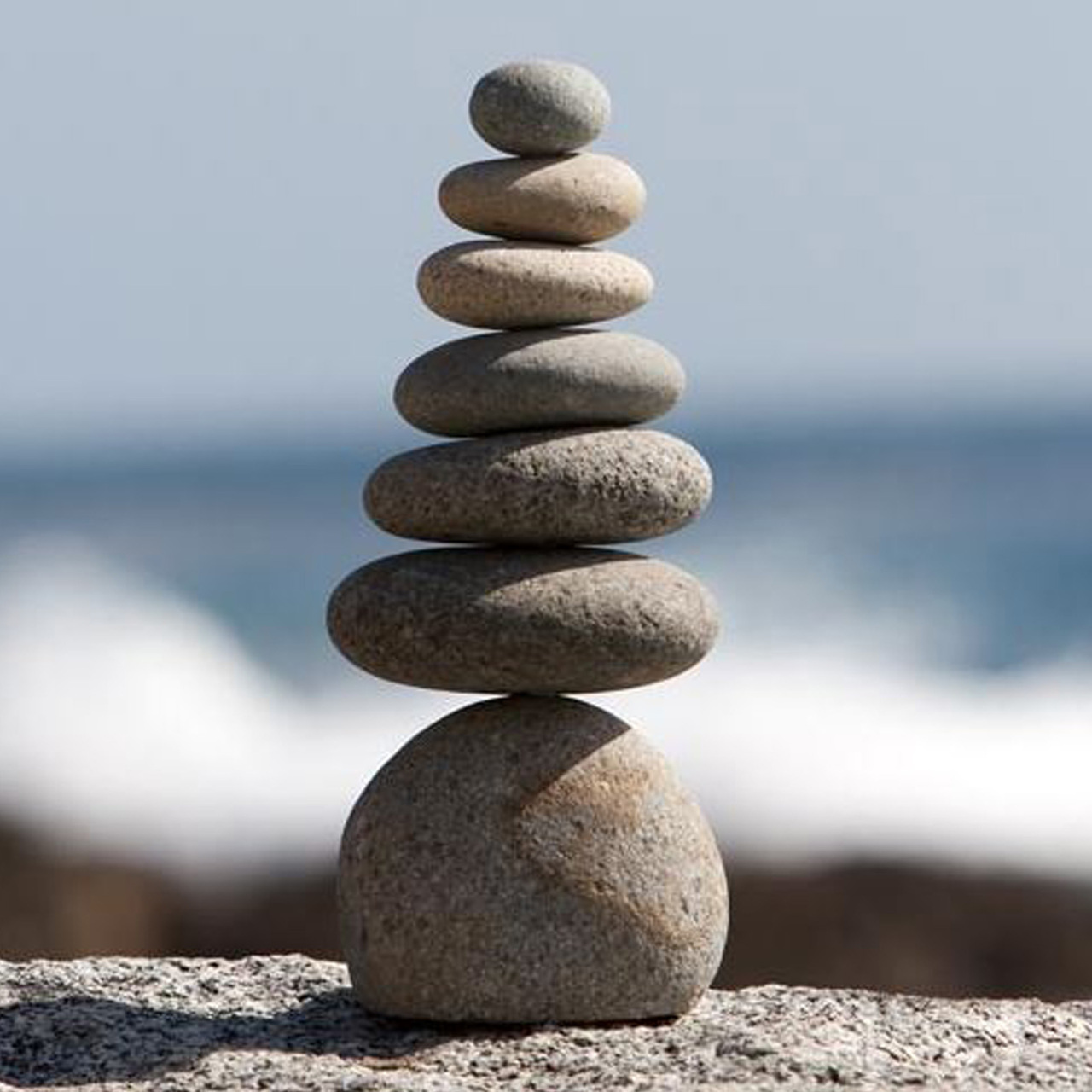Finding the balance does wonders to body and mind.
Do you some times or often hear yourself saying: ”Here we go, I lost my balance again.”
Balance and rhythm are connected in body and mind. We know clearly when we lost our rhythm or when we are out of balance. The body will give us sooner or later clear feedback.
We lost our balance, for example when we feel lethargic, when its hard to get out of bed, when everything appears too much, when we dread the week ahead or when nothing tastes good or feels exciting in our personal or Professional life. We also lost the equilibrium when we feel grumpy and get easily angry or abrupt with the people around us, when our body aches or our mind is dull and dark.
What to do to get back to balance?
To identify what the rhythm and the ingredients are of a balanced life style, it is a matter of becoming very present. What aspects do we need to balance in order to look after ourselves and how do we do it?
The basic needs are a good starting point, enough rest, enough food, enough exercise
The next step is to identify the “deeper needs” that go beyond food, sleep and exercise.
Sometimes we have to upgrade our knowledge about our ‘true selves’ in order to cater for these needs. The balance is easily clarified through a simple diagram
 |
The human organism consists of Body, Mind, Emotions and Higher Consciousness.
These four aspects specifically define our humanness and at the same time define our relationship to self and our surroundings.
They are precious and need to be taken care of to find the balance day to day.
In many of the Eastern health systems, balance and connection equal health. An exercise addict, or workaholic for example spends most of his time to exercise or work long hours. His focus is on the physical. He will spend considerably less time to sit still and observe. Emotions and higher consciousness would have to become very loud in order to be perceived.
This person will eventually develop physical exhaustion as well as placing stress on to the nervous system. Adrenal depletion and with it a growing fatigue of the system are not uncommon in people that predominantly challenge there physical continuously.
Common stress symptoms are back and neck pain, shoulder tension, irritable bowel syndrome, fatigue and extreme mood swings as well as mild depression.
Too much rest and contemplation on the other hand lead a person into sluggish state with an overactive mind and an underactive body. If you made a list with a score from one to ten of how well represented the varied aspects of your life are:
How physical is your life including sport, touch and health?
How easy or difficult is it for you to feel your emotions and express them clearly express to your self and others?
How stimulated are you mentally?
Is there a link to something higher beyond your own existence? Are there ritual, purpose, creativity and expression in your life? Do you have enough quiet time?
Is there something you can do for the higher good? To have a sense of why we are on this planet, gives us direction and meaning to the obstacles in life we all have to overcome at varying times.
Naturally we also need to be in touch with our body, need to feed it appropriately, to move it and cherish it.
Time in nature and mental stimulation belong equally to a balanced life as social contacts, touch and creative expression. In dedicating more time to activities, where we can feel our feelings like ‘alone time’ or time in nature, we allow the feelings to come up to the surface and to be processed.
A rhythm of regular meditation and Yoga regular meditation or Yoga to their life it would serve to maximise the true potential. The old proverb of “everything in moderation” applies to health and life. In the average life in our western societies emotional and spiritual aspects are often undernourished. What does it mean, to connect to our higher consciousness? We do not have to be religious to be spiritual. Spiritual means simply to be connected to the deeper meaning of life and its purpose.
Ritual in daily life means to celebrate the sacred in life.
The enchanted, the’ little magic’ that simply occurs in life is only apparent to those who pay attention – to now. Balance after all is subtle and forever shifting and changing, but it relies on one core ingredient that is connection.
Balance thus is a form of communication between the subtle aspects of mind and consciousness and the more tangible aspects of body and emotions.
Stepping from one moment to the next and resting in the now with ease are the effects of learning to balance our life.
It is well worth it.

